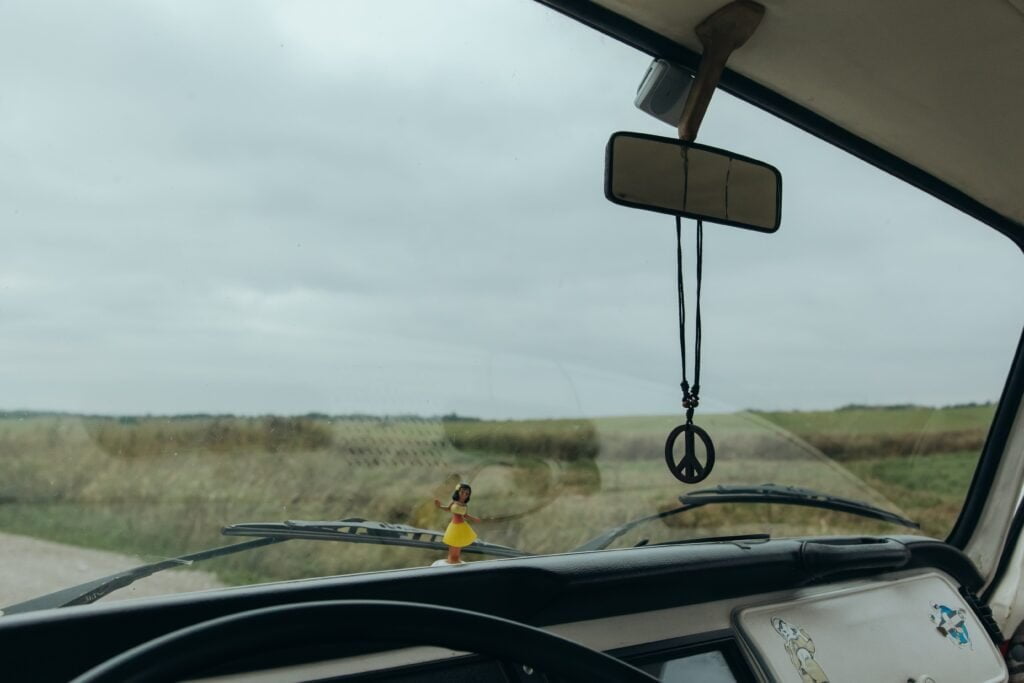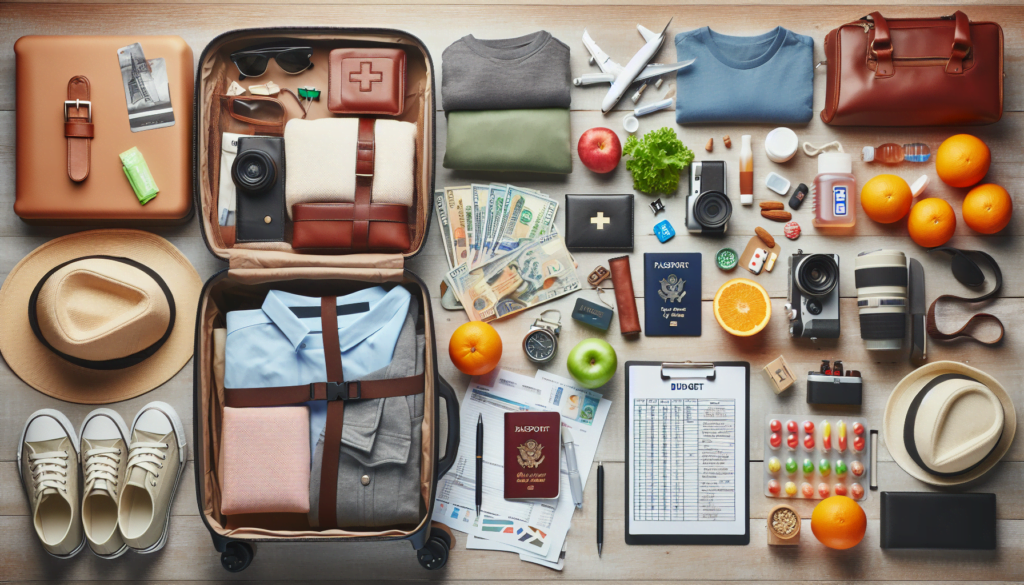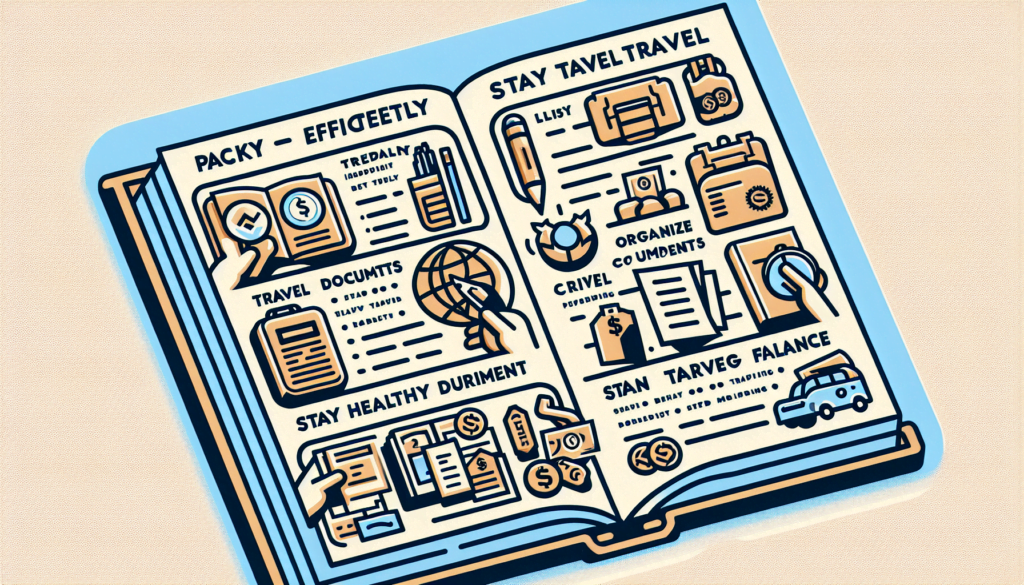
Sorting out your travel documents well in advance is crucial to avoid any last-minute hiccups. Here are some key tasks to complete in this regard:
Check your passport’s expiration date to ensure it remains valid throughout your entire trip. Some countries require your passport to be valid for at least six months beyond your intended departure date. Additionally, make sure your passport has enough blank pages for immigration stamps and visas.
If your chosen destination requires a visa, make sure to apply for it well in advance. Visit the official embassy or consulate website of the country you plan to visit to understand their specific visa requirements and application process. Ensure you have all the necessary supporting documents, such as flight itineraries, hotel bookings, and proof of financial means.
It’s always wise to make copies of important documents, such as your passport, visa, travel insurance, and flight tickets. Keep one set of copies with you while you travel and leave another set with a trusted family member or friend. In case of loss or theft, having these copies will simplify the process of replacing the originals.
Some destinations may require specific vaccinations to protect against local diseases or health risks. Check the recommended vaccinations for your destination on official healthcare websites or consult your healthcare provider. It’s essential to schedule any necessary vaccinations well in advance of your trip to ensure your immunizations are up to date.
Once your travel documents are in order, it’s time to plan your transportation logistics. Consider the following factors when arranging your transportation:
If you plan to travel by air, it’s generally recommended to book your flights well in advance to secure the best fares. Compare prices on different airline websites or utilize online travel agencies to find the most suitable option for your budget and preferred travel dates. If you are taking another mode of transportation, such as a train or bus, ensure you book your tickets ahead of time, especially during peak travel seasons.
Different airlines and modes of transportation have varying baggage allowances and restrictions. Familiarize yourself with the baggage policies of your chosen airline or transportation provider to avoid any surprises or extra fees at the airport. Pay attention to weight limits, size restrictions, and prohibited items to ensure hassle-free travel.
Research the available transportation options at your destination to plan for seamless movement during your trip. Familiarize yourself with public transportation systems, such as buses, trains, or taxis, and consider purchasing necessary passes or tickets in advance. If you prefer more flexibility, renting a car or using ride-sharing services may be viable options in some locations.
If you prefer a stress-free arrival at your destination, consider arranging airport transfers in advance. Many hotels and travel agencies offer this service, ensuring a smooth transition from the airport to your accommodation. Alternatively, research public transportation options or reliable taxi services to get you to your destination comfortably.
Finding suitable accommodations that meet your preferences and budget is essential to ensure a comfortable and enjoyable stay. Here are some steps to take when organizing your accommodation:
To secure the best deals and availability, it’s advisable to book your accommodations in advance. Depending on your travel style and destination, you can choose from hotels, guesthouses, vacation rentals, or even hostels. Booking ahead also gives you peace of mind, knowing that you have a place to stay upon arrival.
Before finalizing your accommodations, compare prices on different booking platforms to ensure you’re getting the best value for your money. Additionally, read reviews from other travelers to gather insights into the quality, cleanliness, and service of the accommodation. Look out for any recurring complaints or red flags.
Consider the amenities offered by the accommodations you’re considering. Determine which facilities are necessary for your comfort and convenience, such as Wi-Fi, breakfast, fitness centers, or swimming pools. Additionally, evaluate the location of the accommodation and its proximity to attractions, transportation hubs, or the city center, depending on your preferences.
Depending on your travel preferences and budget, consider alternative options for accommodations. Renting a house or apartment through platforms like Airbnb can provide a more immersive and home-like experience, especially for longer stays. If you’re open to meeting fellow travelers, staying in a hostel can be a budget-friendly option, offering communal spaces and the opportunity to connect with like-minded individuals.

To avoid any financial surprises during your trip, it’s crucial to create a realistic travel budget. Here’s how to go about it:
Start by estimating the costs for your major expenses, such as accommodation, transportation, and food. Research average prices in your destination and factor in any seasonal variations. Be mindful of any additional costs, such as airport transfers, parking fees, or tolls, which can quickly add up.
Your travel experience would be incomplete without participating in exciting activities and bringing back meaningful souvenirs. Factor in the costs of attractions, tours, entry fees, and souvenirs when creating your budget. It’s a good idea to prioritize the activities that interest you the most and allocate funds accordingly.
If you’re traveling to a country with a different currency, take into account the currency exchange rates and any associated conversion fees. Familiarize yourself with the local currency and research the most cost-effective ways to exchange your money. Consider using credit cards that offer favorable exchange rates or withdrawing cash from ATMs located in reputable establishments.
No matter how well you plan, unforeseen circumstances can arise during your travels. It’s prudent to set aside some emergency funds to handle any unexpected expenses or emergencies that may arise. Having a financial safety net will provide you with peace of mind during your journey.
Packing efficiently and effectively is essential for hassle-free travel. Here are some tips to guide you:
Creating a comprehensive packing list will help you stay organized and ensure you don’t forget any essential items. Start by listing the basics, such as clothing, toiletries, and medication. Then, consider any destination-specific items you’ll need, such as adapters, insect repellent, or hiking gear. Having a list will minimize the chances of overpacking or leaving important items behind.
Check the weather forecast for your destination during your travel dates. This will help you pack the appropriate clothing and gear. Consider layering options for unpredictable weather, and don’t forget essential accessories like hats, sunglasses, and a raincoat or umbrella.
Pack clothing that is suitable for the activities and climate of your destination. Make sure to include comfortable walking shoes and appropriate attire for cultural sites or religious places. Don’t forget essential toiletries and any prescription medications you may need during your trip. Remember to comply with airline restrictions for liquids and pack them in a separate and accessible bag.
To ensure your electronic devices stay charged during your travels, bring suitable travel adapters and chargers. Different countries have different electrical outlets, so having the right adapters will save you the hassle of searching for them at your destination.

While you embark on your travel adventure, it’s essential to take precautions to secure your home. Follow these steps to protect your property:
Keeping a trusted neighbor or friend informed about your travel plans is a good safety measure. They can keep an eye on your property, pick up any packages, or be there in case of emergencies. Provide them with your contact information and a spare key if necessary.
To give the impression that your home is occupied even when you’re away, consider setting up automatic lights or timers. This will deter potential burglars and provide an added layer of security.
An overflowing mailbox or packages left unattended can be a clue to outsiders that no one is home. Contact your local post office or delivery services to arrange for mail and package deliveries to be held or collected during your absence.
Before leaving, double-check all locks on doors, windows, and any other entry points. Ensure your security systems, such as alarms or cameras, are activated and functioning correctly. Taking these precautions will give you peace of mind while you’re away.
Taking care of your finances is essential during your travels. Consider the following steps to manage your money effectively:
To avoid any potential issues with your bank or credit card company, notify them about your travel plans. This helps them distinguish between legitimate transactions and potential fraud attempts while you’re abroad. Additionally, inquire about any fees or restrictions associated with international card usage.
While traveling, it’s advisable to have multiple payment options, including credit cards and debit cards. Some places may not accept certain types of cards, so having alternatives will come in handy. Additionally, carry a small amount of emergency cash in a secure location for situations where cards may not be accepted or accessible.
When withdrawing cash from ATMs, use ones located in secure and well-lit areas, preferably within banks. Avoid displaying large sums of money in public, as it may attract unwanted attention. Be cautious when handling cash and keep it securely stored in a wallet or money belt.
Just as you made copies of important travel documents, digitize important financial information. Keep digital copies of your credit cards, bank account details, and travel insurance information on a password-protected device or in cloud storage. This will facilitate easy access in case of loss or theft.

Your health and safety should be a top priority when traveling. Take the following steps to ensure you’re prepared:
Some destinations may have specific vaccination requirements to protect against local diseases. Check the recommended vaccinations for your destination on official healthcare websites or consult with your healthcare provider. Make an appointment well in advance to update your immunizations if necessary.
Before you travel, familiarize yourself with the local healthcare facilities and their respective emergency numbers. Write down these numbers or save them on your phone for easy access if needed. Additionally, check if your travel insurance covers medical expenses and emergency evacuation, and carry the policy details with you at all times.
Carry a basic first aid kit with essential medications and supplies that may not be readily available at your destination. This includes items like pain relievers, bandages, antiseptic wipes, and any prescription medications you regularly take. Make sure to follow aviation regulations for carrying medications in your carry-on luggage.
Travel insurance is an essential investment when planning your trip. It provides financial protection against unforeseen events such as trip cancellations, medical emergencies, or lost luggage. Research different insurance providers, compare coverage options, and choose a policy that suits your needs and budget.
Learning a few basic phrases in the local language can go a long way in enhancing your travel experience. Here are some steps you can take:
Take the time to practice common phrases in the local language, such as greetings, simple courtesy expressions, and basic questions. Even a few words can make a significant difference in your interactions with locals and show your respect for their culture.
Carrying a pocket dictionary or using a translation app can be immensely helpful in overcoming language barriers. These tools can assist you in finding the right words when faced with unfamiliar situations or when you need to communicate essential information.
Learn some key expressions such as “hello,” “thank you,” and “excuse me” in the local language. Politeness is valued universally, and your efforts to communicate in the local language will be appreciated by the locals.
Don’t hesitate to ask for help or directions if you find yourself in unfamiliar territory. Locals are usually friendly and willing to assist. Use the phrases you’ve learned, and with a friendly smile, you’ll likely receive the help you need.
By following these steps and investing time in your travel preparations, you’ll be well-prepared to embark on a memorable journey. Research your destination thoroughly, organize your travel documents, arrange transportation and accommodations thoughtfully, create a realistic budget, pack smartly, and take measures to ensure the security of your home. Additionally, prioritize your health and safety, be mindful of the local culture, and make an effort to communicate with the locals. With these tips in mind, you can confidently set off on your travel adventure, knowing that you’ve done everything possible to make it a successful and enjoyable experience. Bon voyage!

Related site – Safely prepare for your Thanksgiving road trip with these tips